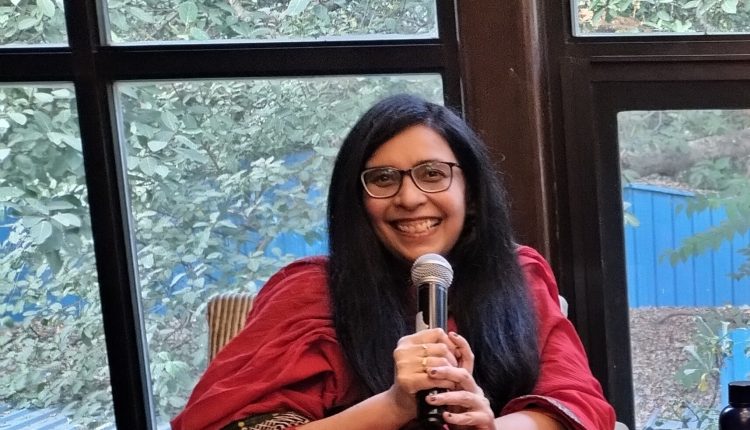Vandana Kumar’s acclaimed multiple award-winning Poetry collection ‘Mannequin Of Our Times’ now in Greek”
By Prof Shiv Sethi
Vandana Kumar is a renowned author and poet whose multiple award poetry collection ‘Mannequin Of Our Times’ has just been translated into Greek and this brand new book in its brand new Avatar was recently launched in Athens at the Global Vision Summit 2025. Vandana Kumar also presented a paper on “Volunteering and Translation as Bridges of Culture and Agents of Human Empowerment. She comes back from a very rich and rewarding literary experience and was awarded the Global Icon Award this year by the Writers Capital Foundation.” The Kashmir Age Daily had recently had a conversation with the author.
Here are the excerpts
Q1. Congratulations for both the book launch and the award. If you had to summarise it in a few words, what do you think has appealed to the audiences in ‘Mannequin Of Our Times’ – both to English speaking audiences and to the Greeks?
A.One is always grateful when readers are able to relate to our written words – be it prose or poetry. There is no bigger reward for an artist. Perhaps it is the simplicity of the language in which the poetry is written that has clicked. Mostly, I feel that a lot of the poetry is identifiable. It is poetry that largely reflects on these times – the dystopian times and the fractured society in which we live. It is also poetry that is not sugar coated and talks of the darkness that we all hold as individuals, within us as well.
Q2. Why do you think translations are important?
A. Where would the world be without its works of translation -The philosopher poet Dostoevsky’s “Crime and Punishment" and its deep morality would only be accessible to the Russian speaking world.
The works of Rumi, originally in Persian, have reached millions worldwide through translations, fostering interfaith and intercultural connections.
Translations have an important role to play for cultural harmony and in getting rid of bigoted ideas and stereotypes in a world always on the edge of war. Works on love and longing and the need for peace written by Hindus, Christians, Jews or Muslims reach each other with the realisation that everyone wants the same thing. Translation also protects indigenous languages and traditions from extinction, ensuring that diverse narratives are heard.
Q3. Does recognition change your relationship with your own work?
A. Yes and no. Recognition just gladdens the heart that something you wrote has been received well and understood in another part of the world. The fact that your work as an artist resonates with another culture and its people is supremely satisfying.
In terms of the creative process, it really doesn’t change anything for me. My poetry is an organic process and the writing of it is not going to change – form, shape and style so that it can win different awards. The change could happen as a part of evolving, but not with any literary recognition in mind.
Q4. How do you define success as a poet or artist?
I think that the real success of a poet is when his writing completes a journey. Every single work or poem is a journey and when the writing takes you to some point and completes you then your work is successful at a personal level. If it competes a journey for his reader then nothing could be more rewarding.Completion also includes more realisations and opening of the mind in newer directions.
Q5. Websites that have covered the Global Vision Awards, describe you as a feminist and activist – would you agree?
A. I am a feminist but above everything else I am an artist – an artist with my flaws and contradictions and imperfections. An artistwho is observing a fragmented and fractured society and its flaws. My feminism is just one part of my identity. I am a woman so it will be a woman writer and what she brings to theartist table. But there are multiple identities at play here and multiple things that I write about.


Comments are closed.